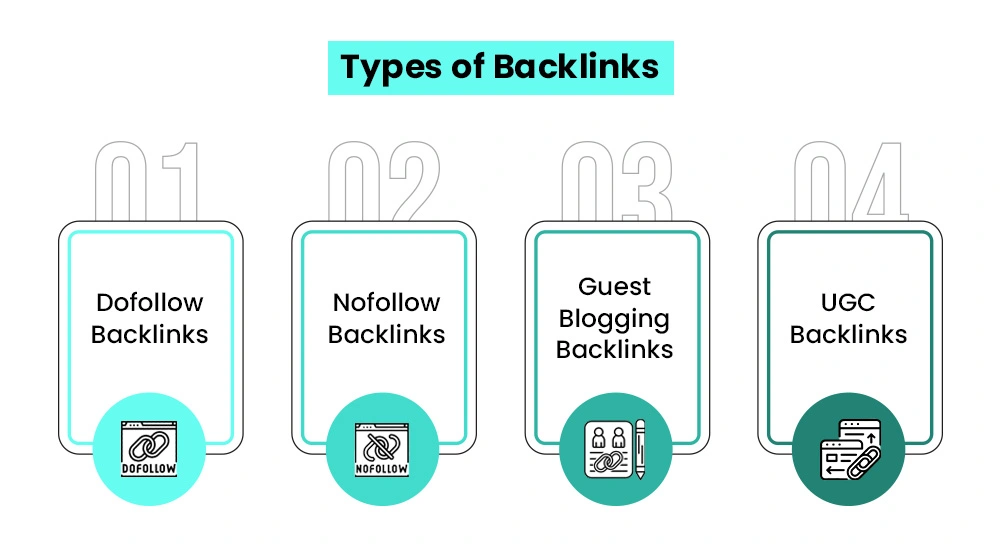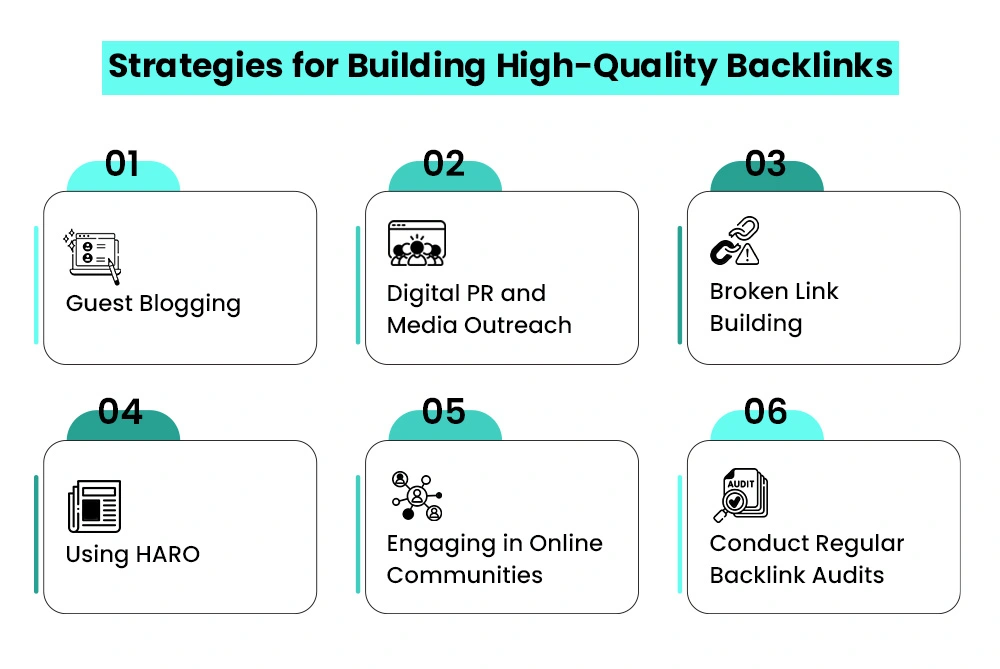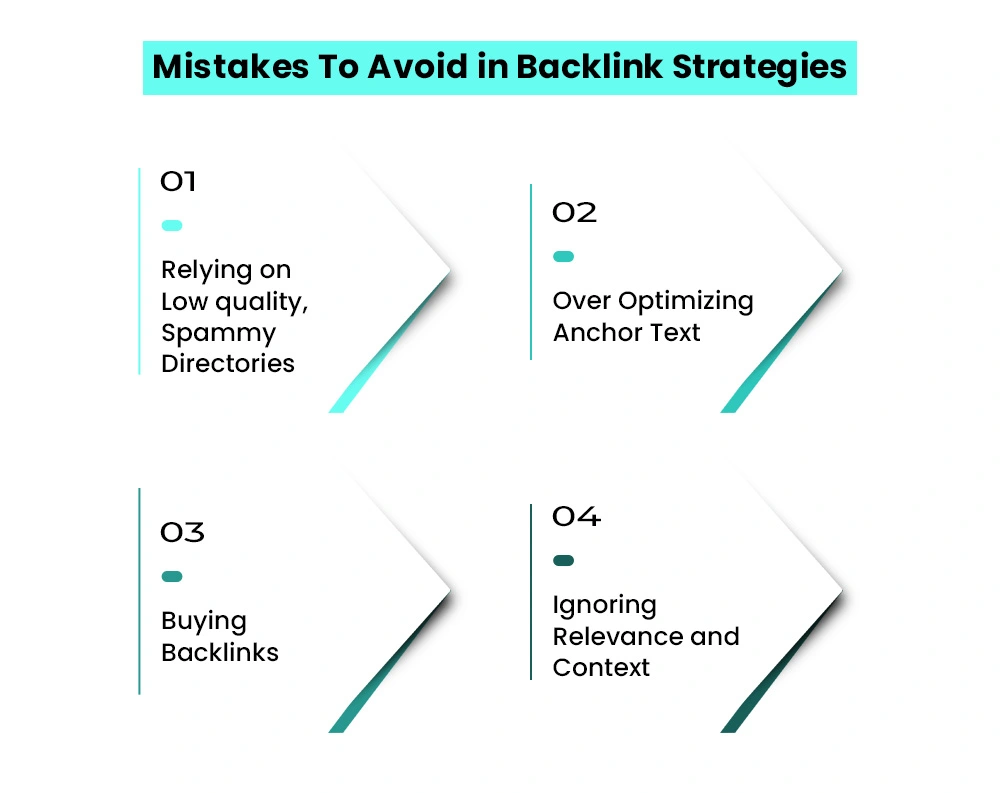How Do Strategic Backlinks in SEO Boost Organic Visibility?
Tired of being drowned in search results? You’re not alone; the good news is, there’s a smarter way to rise above the noise. The secret weapon to increasing organic visibility lies in strategic backlinks in SEO.
According to BrightEdge, over 53% of website traffic comes from organic search, making it one of the highest ROI channels for long-term digital growth.
But what exactly is organic visibility? Simply put, it means your website appears higher in organic search results when users search for relevant keywords. It’s the type of visibility that builds trust, drives traffic, and establishes long-term authority without constantly paying for ads. That’s where backlinks come in.
A backlink is simply a link from another website pointing to yours. These links are a critical signal to search engines, and when done right strategically, they become one of the most powerful tools for boosting your search engine presence.
In this blog, we’ll explore how strategic backlinks drive organic visibility and what makes them truly effective.
Understanding the Role of Backlinks in SEO
Backlinking in SEO is like getting trusted recommendations online; it tells search engines your content is credible. The more quality links you earn, the higher your chances of ranking. Over time, strong backlink profiles help build your site’s authority and push your pages higher in the search results.
Types of Backlinks
How many types of backlinks in SEO? Well, there are quite a few. However, here we are talking about the 4 major types of backlinks in SEO.

1. Dofollow Backlinks
Dofollow links are the ones you want. They tell search engines to pass authority from one site to yours, helping boost your domain strength and rankings. These links aren’t handed out, they’re earned.
Think: high-quality content that others naturally reference, genuine community engagement, or strategic collaborations. When it comes to backlinking in SEO, dofollow links play a crucial role in improved organic visibility.
2. Nofollow Links
Nofollow links may not pass SEO authority, but they still matter. Search engines recognize their special tag, so they don’t boost rankings directly, but they do add balance to your backlink profile.
They can drive valuable referral traffic, too. You’ll often earn nofollow links through blog comments, forums, directories, or social media, making them a natural part of any smart backlinks for SEO strategy.
3. Guest Blogging Backlinks
Guest blogging backlinks come from writing valuable content for other websites in your niche. In return, you usually get a backlink in your bio or within the post.
It’s a win-win, great for SEO and for reaching new readers. The real key? Content quality. The better your insights, the more likely publishers will welcome your guest posts and link back to your site.
4. UGC (User-Generated Content) Backlinks
User-generated content (UGC) backlinks come from users mentioning or linking to your site in places like blog comments, forums, or social media posts. While these links often carry a “UGC” tag, they still add social proof and diversify your backlink profile. Just make sure they come from genuine sources; spammy or low-quality links can hurt more than help your backlinking in SEO strategy.
– Also Read- How To Use User-Generated Content in eCommerce Marketing?
What Are The Components of Quality Backlinks?
Not all backlinks carry the same weight, and understanding what makes a quality backlink is key if you want to increase organic traffic to your website. In the bigger picture, the role of backlinks in SEO isn’t just about volume; it’s about earning the right kind of links that search engines trust.
- Relevance- A backlink from a website within your industry or niche tells search engines your content fits into that topic space. It signals that your web pages are contextually valuable.
- Authority- Links from credible sources like established blogs, news sites, .edu or .gov domains carry more SEO weight. These sources are already trusted, and that trust extends to your site.
- Natural Placement- A link embedded within the main content of a page looks more authentic and meaningful than one buried in a footer or sidebar.
- Anchor Text- The clickable words should be relevant to your content, helping search engines better understand the topic of your linked page.
In short, strategic, well-placed backlinks help boost your SEO performance, and that’s exactly how they help increase your organic visibility.
How Backlinks Influence Organic Visibility?
Backlinks play a crucial role in shaping a website’s position in search engine rankings. Search engines like Google view them as strong indicators of credibility and trust. When authoritative sites link to your content, it signals that your website offers value, making backlinks one of the most influential ranking factors in SEO today.
Here are some of them:
1. Role in Ranking Algorithm
Backlinks are a big deal in Google’s ranking system; they act like trust signals. When high-authority sites link to your content, Google sees it as a vote of confidence, which can help boost your rankings. Using tools like Google Search Console, you can track which sites are linking to you and how those backlinks impact your organic visibility over time.
2. Quality Over Quantity
When it comes to backlinks, quality always beats quantity. One link from a trusted, industry-relevant site can do far more than many low-quality ones. Spammy links can hurt your SEO. Google treats backlink quality as a key ranking factor, so focusing on natural, high-value links from credible sources is essential for boosting organic visibility.
3. Anchor Text And Relevance
Anchor text is the clickable part of a link, and it helps search engines understand what your page is about. When it’s relevant and naturally includes keywords, it can boost your rankings and drive referral traffic. But be careful: stuffing exact-match keywords can initiate penalties. A smart mix of descriptive, branded, and generic anchor text keeps your backlink profile healthy and effective for organic visibility.
4. Indexing And Link Juice
For backlinks to help your SEO, they need to be indexed by search engines. Once indexed, they pass SEO value, often called “link juice,” to your site. This boosts your domain authority and can improve your rankings. That’s why earning high-quality backlinks and making sure they’re seen by search engines is key to growing your organic visibility.
– Also Read- The Ultimate Guide To Increase Organic Traffic To Website In 2025
Effective Strategies for Building High-Quality Backlinks

Building high-quality backlinks remains an essential part of any winning SEO strategy. According to a 2022 Serpsta study, 85.7% of brands use link-building strategies. When done right, these links can significantly boost your site’s authority, visibility, and rankings in search engines.
To stay competitive in 2025, it’s important to focus on smart, sustainable link-building methods. Here are some of the most effective backlink strategies to help elevate your SEO game this year.
1. Guest Blogging
One of the most effective ways to build high-quality backlinks in SEO is through guest blogging. It’s a simple yet powerful strategy; write valuable, insightful content for other reputable websites in your niche, and include a natural link back to your site.
Here’s why guest blogging works wonders for both backlinks and SEO:
- It positions you as an expert in your industry.
- You tap into a new, relevant audience.
- You earn credible backlinks that boost your site’s authority.
The key is to focus on content that genuinely adds value to the host site’s readers. Avoid overly promotional pieces, think education and insight first, and links second. When done strategically, guest blogging strengthens your SEO footprint while building long-term brand visibility.
2. Digital PR and Media Outreach
PR and digital outreach are often overlooked, but they’re incredibly effective for building high-quality backlinks in SEO. When your brand is mentioned in news on reputable media sites, it not only boosts visibility but also earns you powerful backlinks that search engines trust.
Think of it as modern-day word of mouth. By sharing your expertise, unique data, or stories with bloggers, you increase your chances of being cited (and linked to) in authoritative content. These editorial backlinks carry serious SEO value and help you rank higher in search results.
To get started:
- Craft a compelling brand story or angle.
- Use platforms like HARO (Help A Reporter Out) to connect with media.
- Build genuine relationships with industry publications and journalists.
Done right, digital PR builds credibility, expands reach, and strengthens your backlink profile naturally and effectively.
3. Broken Link Building
Broken link building is one of the smartest and most underrated strategies for earning high-quality backlinks, and it’s a win-win for everyone involved. Here’s how it works: you find broken links on relevant websites in your niche, then reach out to the site owner with a helpful suggestion. Replace the broken link with a link to your relevant and high-value content.
Why does this work?
- Website owners appreciate the heads-up about outdated or non-functional links.
- You offer a ready-made solution that improves their user experience.
- You earn a backlink without having to create brand-new content from scratch.
Over time, using this strategy consistently can help grow the number of backlinks pointing to your site, which directly boosts your authority and organic visibility. Just remember, your content must be genuinely helpful and relevant, or the pitch will fall flat. Quality and relevance always win in backlink building.
4. Using HARO
When it comes to boosting your website’s authority, not all link-building strategies are created equal. The most effective ones focus on value, relevance, and building real relationships, not shortcuts.
High-quality backlinks come from sites that genuinely find your content useful and want to share it with their audience. Here are a few tried-and-tested link-building strategies that work:
- Create share-worthy content: Think original research, in-depth guides, or helpful tools that people naturally want to reference.
- Leverage guest blogging: Write for reputable sites in your niche and earn contextual backlinks.
- Reclaim brand mentions: Use tools to find unlinked mentions of your brand and request a backlink.
- Engage in digital PR: Share your expertise with journalists or participate in expert roundups.
Consistency is key. When done strategically, these methods help build a strong backlink profile, increasing your site’s credibility and organic visibility over time.
5. Engaging in Online Communities
Participating in forums, LinkedIn groups, Reddit threads, and other social media communities is an underrated yet highly effective way to earn backlinks in SEO. These platforms are filled with niche audiences looking for answers, resources, and genuine conversations.
By showing up consistently, offering helpful insights, and sharing your expertise, you naturally become a trusted voice. Over time, members may begin referencing your content or linking to it in their own posts, blogs, or websites, earning you valuable backlinks without aggressive promotion.
The key is authenticity. Instead of dropping links randomly, focus on building relationships and being genuinely helpful. When your content adds value to the conversation, people are far more likely to link to it and share it with others.
As you strengthen your presence in these communities, you have the chance to build high-quality backlinks. You can also boost your brand visibility and credibility, all while enhancing your organic reach and SEO strength.
– Also Read- 5 Best Practices for Social Media Community Management
6. Conduct Regular Backlink Audits
Performing regular backlink audits is a smart move if you’re serious about strengthening your SEO strategy. It’s not just about how many backlinks you have, it’s about their quality.
A backlink audit helps you evaluate the health of your backlink profile, spot harmful or spammy links, and take action before they hurt your rankings. Tools like Google Search Console, Ahrefs, and SEMrush make this process easier by providing detailed reports on where your backlinks come from and how they’re performing.
If you notice links from untrustworthy or irrelevant websites, you can disavow them to prevent potential penalties from search engines. Cleaning up your backlink profile ensures that only high-quality, relevant links are contributing to your site’s authority.
Regular audits also help you spot gaps and new opportunities, keeping your SEO strategy agile and effective. In the long run, a clean and authoritative backlink profile supports better rankings and sustained organic visibility.
Why Are Backlinks Important For SEO?
Backlinking is essential because it strengthens your site’s authority, improves search engine rankings, and drives referral traffic. Understanding why backlinks matter helps you fully grasp their impact on boosting organic visibility through SEO.
1. Enhance Search Engine Rankings
Backlinks act like votes of confidence for your website. When trusted, relevant sites link to your content, search engines see your site as more credible, helping boost your rankings. That’s the real importance of backlinks in SEO: they directly influence the visibility of your pages in search results, especially when those links come from high-quality sources.
2. Boost Organic Traffic Quality
Backlinks do more than improve rankings, they also bring in highly targeted visitors. When top sites in your niche link to your content, you attract readers already interested in what you offer. This boosts both visibility and conversions, making backlinks a powerful part of Search Engine Optimization and a smart way to grow quality organic traffic to your site.
3. Increase Domain Authority (DA)
The major benefits of backlinks? They help boost your domain authority, a key signal of how likely your site is to rank on search engines. When trusted, high-authority websites link to you, it strengthens your site’s reputation. The stronger your domain authority, the better your chances of rising in the ranks and boosting your organic visibility.
4. Develop Brand Visibility And Credibility
Getting linked by trusted sites in your niche isn’t just great for SEO; it also shines a spotlight on your brand. It’s a smart building strategy for growing visibility, trust, and industry credibility. Over time, these quality backlinks help position your brand as a go-to resource, making you more recognizable to both search engines and your audience.
Common Mistakes to Avoid in Backlink Strategies

Here are some of the common mistakes you need to avoid in backlinking strategies:
1. Relying on Low-quality, Spammy Directories
Relying on low-quality, spammy directories to achieve site links might seem like an easy win, but it can seriously damage your SEO efforts. Search engines are quick to catch on, and instead of boosting your rankings, it could harm your site’s credibility. Focus on earning links from reputable, niche-specific directories that add value and reflect well on your brand.
2. Over-optimizing Anchor Text
When you build backlinks, stuffing the same exact-match anchor text everywhere can backfire. It might feel like a shortcut to better rankings, but search engines see it as spammy behavior. Instead, focus on using a mix of branded, generic, and relevant anchor texts that fit naturally into the content. This keeps your backlink profile balanced and helps you grow your organic visibility without triggering penalties.
3. Buying Backlinks
Buying backlinks might sound attractive, but it’s a shortcut that can backfire badly. Search engines are smarter than ever and can easily detect paid links, putting your site at risk of penalties. Instead of risking your credibility, focus on earning backlinks in SEO through genuine relationships, valuable content, and smart outreach. Authentic links will always carry more weight and help you build lasting organic visibility.
4. Ignoring Relevance and Context
Getting backlinks is great, but if they’re coming from sites that have nothing to do with your niche, they won’t help much and might even hurt. Relevance and context matter. A backlink from a site that aligns with your content tells search engines you’re credible in that space. So, always aim for links that naturally connect to what your web pages are actually about.
– Also Read- E-E-A-T Explained: How to Make Google Trust Your Blog In 2025
Conclusion
Backlinks in SEO aren’t just a technical detail; they’re the bridges that connect your content to the wider digital world. When built strategically, they enhance your site’s credibility, authority, and search engine rankings, helping your brand show up where it truly matters.
From guest blogging and digital PR to community engagement and regular audits, the right backlink strategies can make all the difference. But remember, it’s not about chasing links blindly; it’s about earning them through relevance, value, and trust.
As search engines evolve, so should your approach to backlinks. Focus on quality over quantity, and you’ll not only boost your organic visibility but also build a lasting foundation for your site’s long-term success in the ever-competitive online space.
Our marketing experts at Mastroke create effective backlink strategies that increase brand awareness and authenticity. Contact us to get your marketing blueprint!